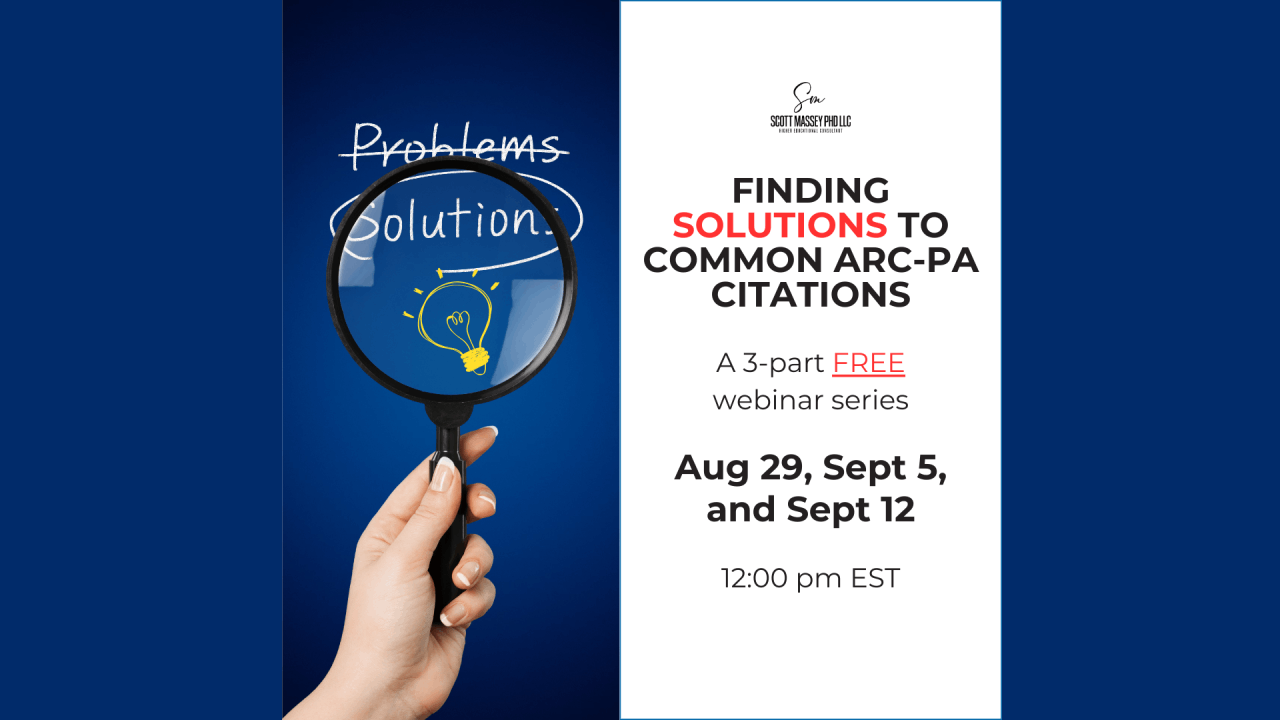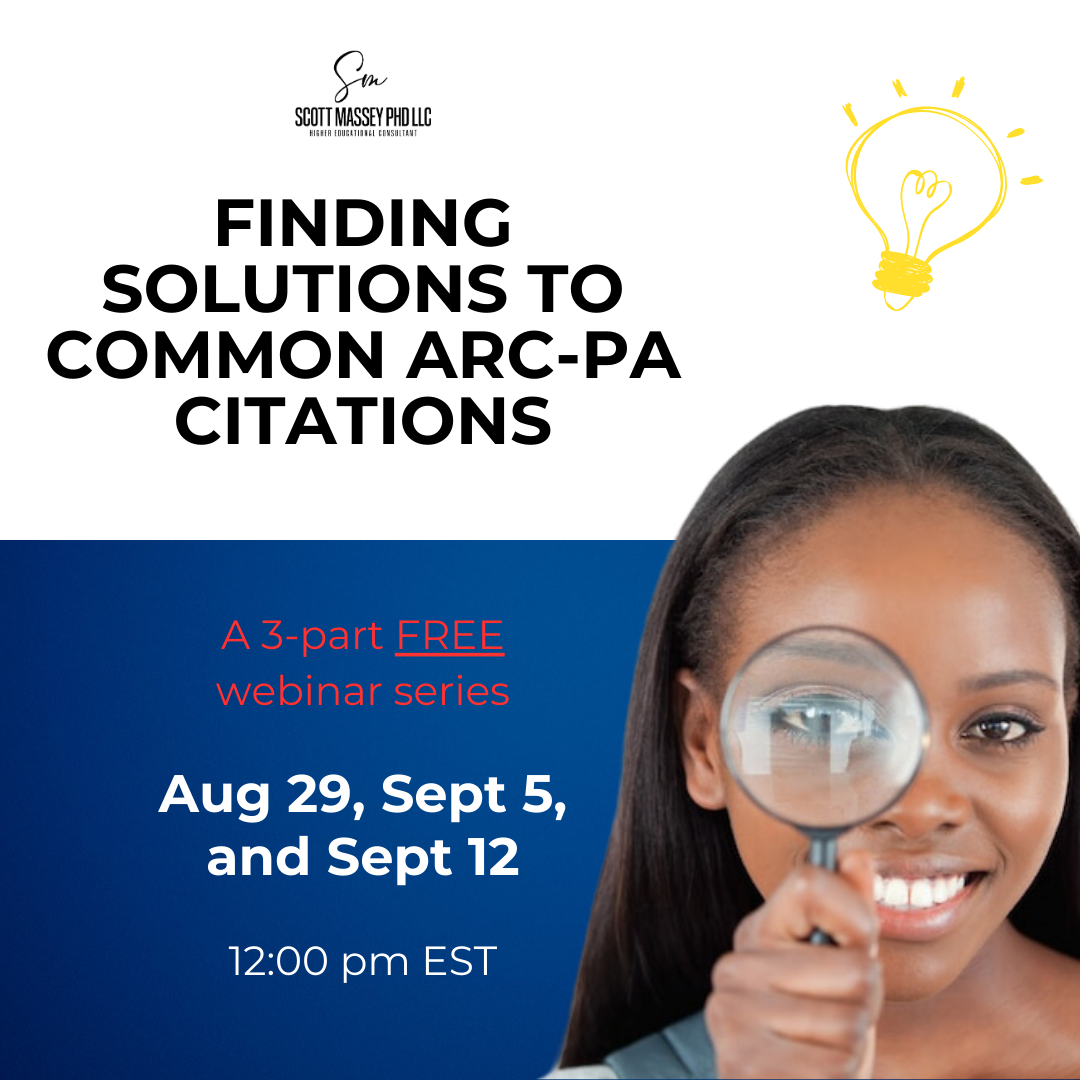Ongoing Webinar Series: Finding Solutions to Common ARC-PA Citations

This is the second blog related to our ongoing webinar series regarding Solutions to the Top 10 ARC-PA solutions. As a consultant and PA educator for 31 years, my goal for these communications is to help existing PA programs become more aware of some of the requirements that have been put in place. This is not a criticism of ARC-PA, nor can I speak for ARC-PA.
The accreditation standards released by ARC-PA are both static and organic in nature. The interpretation of what the standards represent cannot necessarily be inferred from the written word. During each commission meeting, changes take place that result in revisions and nuanced differences in interpretation. In my opinion, the biggest challenge is meeting the C standards from both an expertise and a manpower perspective. The changes in expectations regarding the drafting of the self-study report have resulted in a steep increase in citations. This is affecting provisional pathway programs and long-standing programs. This is evidenced by reviewing the commission action page from the ARC-PA.
When reviewing the commission action page starting in March 2022, it reveals that 20 programs were placed on probation out of the total of 98 programs reviewed. This represents 20% of all commission actions resulting in probation during that time span. When factoring in only 2023, 11 out of 44 programs were placed on probation, which is 25%. Does this represent a new trend in program expectations? This may indicate that long-standing programs have not fully implemented the requirements of the fifth edition standards. More than likely, this is a multifactorial reason, but nonetheless, it is an alarming trend. The question needs to be asked: Why? Multiple citations occur within the C standards, particularly related to the drafting and execution of the self-study report. The following list constitutes possible contributing factors to this increasing incidence:
- The ARC-PA has a very exacting and specific template that is followed by all reviewers. This is treated almost as an algorithm.
- The SSR is a very high-level technical report that not all individuals have the training or skill sets to successfully write to meet the requirements set by the ARC-PA.
- Many programs do not have adequate expertise or manpower to ensure that all elements are completed exactly as described.
- Site visitors will include observations if any element is not presented precisely as defined by the ARC-PA.
My entire motivation for this webinar series is to raise awareness among the PA educational community. These webinars will also provide some value in terms of providing a description of expectations and possible solutions. Speaking for myself, the decision to place programs on probation is inflicting harm on the programs involved. As a consultant, I've seen program directors fired from their positions, resulting in the destabilization of the program. This impacts morale among the faculty and staff as well as raises concerns from prospective students. This has far-reaching consequences that need to be avoided at all costs. The impact of probation can last for several years, with several programs since 2020 enduring two terms of probation and then withdrawing accreditation.
I would like to present several concepts related to standard C1.02. This standard essentially has five separate components, each of which could be determined to be out of compliance, resulting in the citation. A combination of citations related to standard C1.02 represents three out of the 10 top citations. The top citation is standard C1.03, which encompasses the self-study report. In many cases, the citations are cross-referenced, resulting in multiplication. If a program does not have a compliant assessment system as described in standard C1.01, this will result in a poorly developed SSR, resulting in citations involving standard C1.03. Oftentimes, this is then cross-referenced to standard C1.02 because the program did not demonstrate the requirements related to critical analysis of data resulting in data-driven action plans.
The second webinar taking place on Tuesday, September 5, 2023, at noon EST will focus on compliance strategies regarding standard C1.02. Solutions that you may implement into your own program.



